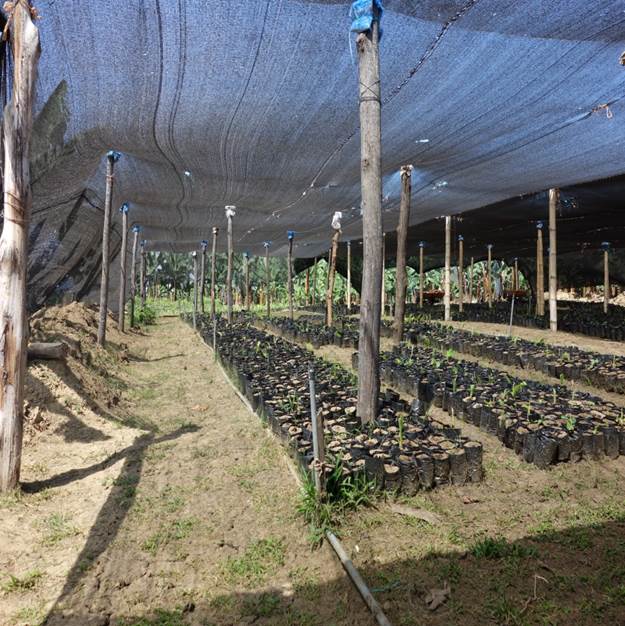
The Querdenker GmbH develops, markets and manages sustainable projects and products, particularly in the field of tropical agriculture and forestry in Costa Rica.
In the past decades Costa Rica was the country with one of the fastest rates of deforestation worldwide. The government has recognized the problem though. With the help of subsidies for forest conservation and reforestation as well as the establishment and expansion of national parks, the government achieved that the forest area now accounts for about 50 percent of the country again. However, the process of reforestation is often sped up by planting fast-growing exotic tree species in large-scale monocultures. The associated problems are both of social and environmental nature: loss of soil quality, rapid spread of plant diseases and pests and the increased need for pesticides are some of the negative effects.
The German company Querdenker GmbH, in cooperation with the local partner Puro Verde SA, has initiated a reforestation project in which the perspectives of the regional population and other stakeholders are taken into account. The project integrates structured mixed stands of tree species characterized by a long life span, agricultural crops (agroforestry) and pastures. This maximizes carbon storage and increases the resilience of vegetation types.
WiN=WiN effects
The primary target group of the project is the local population of the underdeveloped, agricultural and forestry dominated north of Costa Rica. The purpose of this PPP-Project is to integrate various components into one project and to create the necessary conditions for following processes: the competitive situation of local suppliers improves and market entry opportunities increase in comparison to large agricultural companies. Marketing of regionally grown products improves and self-sufficiency of the local population increases. The population is less dependant on expensive food imports.
The concept of the company includes: The cultivation of about 20 different native tree species with high value timber potential, regional marketing of local products to support self-sufficiency of the finca staff and local small-holder farmers, agriculture and livestock breeding, generation of additional revenue opportunities through agricultural investments, training and education to raise awareness and cross-linking of the isolated nature reserves in Costa Rica.
